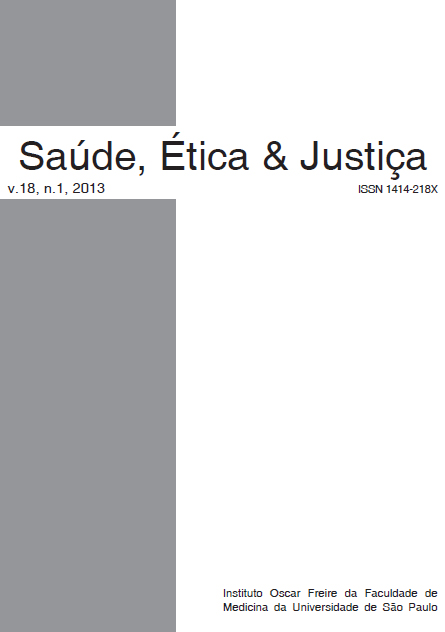A antropologia forense como triagem para as análises da genética forense
DOI:
https://doi.org/10.11606/issn.2317-2770.v18i1p128-133Palavras-chave:
Genética forense, Antropologia forense, DNAResumo
A Genética Forense hoje é uma das principais ferramentas utilizadas em casos de identificação humana. Esta emprega as técnicas da biologia molecular para auxiliar na elucidação de crimes, principalmente na determinação da autoria deste. Contudo é sabido que a análise do DNA ainda é um exame de alto custo e que muitas vezes, em centros que não possuem um laboratório para esse fim, os mesmos têm que enviar as suas amostras para serem analisadas em outros locais, o que pode demorar meses até a obtenção do resultado. Como uma técnica aliada para a identificação humana, podemos incluir a Antropologia Forense, que vem a ser uma área de conhecimento que aplica os métodos da antropologia física e arqueologia para coleta e análise de evidências legais, buscando estabelecer a identidade de um ser humano. O exame antropológico forense consiste em traçar um perfil bioantropológico da vítima, incluindo: sexo, ancestralidade, idade, estatura, mão dominante (lateralidade), características dentárias, anomalias ósseas, patologias ósseas e características individuais. Com isso espera-se reduzir o número de análises de DNA forense, uma vez que a análise antropológica forense fornece dados que permite o direcionamento e a aplicação do exame de DNA para um indivíduo ou um grupo específico de pessoas. Com isto, também é possível a redução dos gastos de um laboratório de Genética Forense, pois também há a otimização dos resultados. A aplicação do protocolo para análise de ossadas do Laboratório de Antropologia Forense (LAF) serve como triagem para o exame de DNA forense. Este protocolo já é utilizado na Faculdade de Medicina de Ribeirão Preto da Universidade de São Paulo (FMRP/USP) e foi criado em 2005, em um projeto entre a University of Sheffield (UK) e o Centro de Medicina Legal (CEMEL) da Faculdade de Medicina de Ribeirão Preto da Universidade de São Paulo (FMRP/USP). Com os resultados bioantropológicos de um exame de antropologia forense é possível reduzir o número de amostras para que seja feito um exame de DNA, sendo possível reduzir o tempo e o custo de um exame dessa natureza. Isso é demonstrado na análise de caso apresentada aqui.
Downloads
Downloads
Publicado
Edição
Seção
Licença
Autores que publicam nesta revista concordam com os seguintes termos:
- Autores mantém os direitos autorais e concedem à revista o direito de primeira publicação, que permite o compartilhamento do trabalho com reconhecimento da autoria e publicação inicial nesta revista.
- Autores têm autorização para assumir contratos adicionais separadamente, para distribuição não-exclusiva da versão do trabalho publicada nesta revista (ex.: publicar em repositório institucional ou como capítulo de livro), com reconhecimento de autoria e publicação inicial nesta revista.



